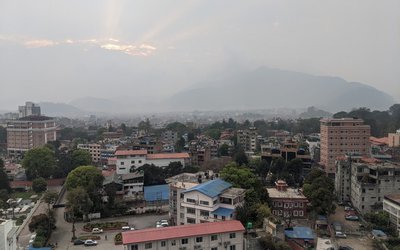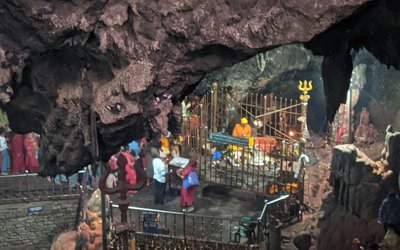Some provisions related to adoption in the Civil Code Bill (2006):
Clear definitions of godson and goddaughter (adopted children in the Nepali context)
Through section 167 of the proposed Bill, a clear definition of these terms have been given.
Priority given to children’s rights and welfare
Section 168 prohibits adoptions in circumstances where such arrangements are detrimental to the rights and welfare of children.
Provisions for keeping adopted children
Section 170 (1) defines the conditions under which the practice is acceptable and 170 (2) defines the circumstances under which it is not.
Detailed list of conditions under which children can be given up or accepted for adoption.
Section 171 elaborates on conditions under which children should not be given up or adopted. In particular, a provision for prohibiting adoption after a child reaches a certain age is most appropriate. But a provision about adopting non-Nepali children remains unclear. This issue has been addressed again in a separate context.
Provision that allows foster parents or institutions to give consent for adoption
The forth amendment to the General Code (1970) had created a provision that allowed foster homes or orphanages to give consent for adoptions [4 (a)] but this provision was annulled by the eleventh amendment to the Code (2002). It has been reintroduced through section 173 of the Bill.
Provision requiring consent of children during adoption
Section 173 (3) of the Bill mandates the taking of consent from children over the age of ten years at the time of adoption.
Provision on adoption status after reunion of a separated parent with his/her former partner
If a man or woman adopts a child after legally separating from his/her partner but subsequently reunites, legally speaking, it will be considered that both partners have adopted the child (section 174).
Provision requiring a court to authenticate the application of an adoptee
Section 175 requires a court to authenticate the application given by an adoptee during adoption. Because conditions for allowing adoption have been specified through this Bill, these conditions need to be evaluated before any adoption can be approved. Hence it is more appropriate to involve a court for approving such applications, instead of the currently accepted tax office. This provision is meant to end the trend of enticing wealthy couples that do not have children into adopting.
The rights and responsibilities of adoptees to be equivalent to that of biological children
Section 176 ensures that the rights and responsibilities of adopted children from and towards their parents shall be the same as if they were the biological children of their adopting parents.
The last names of adopted children
Section 177 gives adoptees the freedom to choose between taking the last names of an adopting parent or parents or to retain the last name of a biological parent or parents. Section 3 (1) of the Children’s Act of 1992 states that the father, mother, and family members of a newly-born child must name the baby according to their religion, culture, and customs. In this context, letting the child keep the last name of his/her biological parents seems appropriate.
Provisions related to adopting and the duties of adoptees
Section 179 has provisions related to adoption and section 180 has provisions related to the duties of adoptees.
Provision on biological parents’ rights to meet or correspond with their children
Section 181 makes provision for allowing biological parents to meet or correspond with their biological children after giving them up for adoption.
Automatic annulment of adoption
Section 182 states that an adoption shall be automatically considered illegitimate if it goes against the law.
Provisions for ending an adoption
Section 183 (1) importantly states that if an adopted child is unable to fulfil his/her duties, an adoption can be terminated. The provision also requires adopting parents to fulfil their duties as well. Section 183 (2) lists other conditions in which adopting parents can terminate an adoption.
Clarification on rights and duties after an adoption is terminated
Section 184 elaborates that, after an adoption is terminated, an adoptee’s rights from and duties towards his/her adopters shall also end.
Room for improvement:
The definition of godson and goddaughter can be more clear and concise
In section 167, the phrase ‘in accordance with the law’ should be added after the description of the adoption process.
The access of adoptees to the foundational rights of children should be emphasized
A draft of the Civil Code was published in 2006 (with the involvement of the Supreme Court). Section 2 (2) [part 1, chapter 6] of this draft prohibited adoptions by a person who cannot adequately nourish, care, or educate a child. Section 168 of the Bill prohibits adoption in circumstances where such arrangements are detrimental to the rights and welfare of a child. But the points made in 2 (2) of the draft should be added here in order to guarantee that the fundamental rights of a child are protected.
Replace ‘woman’ with ‘person’
Because of how 169 (2) is written—the use of ‘husband or wife’ in particular—the word ‘woman’ used in this subsection should be replaced with ‘person’. It is unclear whether a person who is legally separated from their partner and whose partner has custody of their children can adopt. Letting such people adopt seems appropriate.
Clarification needed on whether those who have children can adopt
Section 169 (3) allows those who have biological children to adopt, but this provision needs to be elaborated and explained. If this has been intended to imply that separated parents without the custody of their children can adopt, this fact should also be clarified.
The age limit for adopters should be lowered
In today’s context, there are many couples that actively decide not to conceive but would like to adopt. Therefore, the age limit of 45 set by 170 (1) (b) & (c) is anachronistic. The limit should be lowered to thirty-five.
‘Criminal accusation indicating lack of morality’ should be defined
Section 170 (2) (b) states that those found guilty by the courts for criminal offenses showing lack of moral character cannot adopt. The list of criminal offenses that are relevant to this clause should be specified.
Provision allowing appeal
Section 175 (2) and (3) talk about approving and disapproving adoptions. A subsection (4) should be added to allow a dissatisfied party to appeal any such decisions.
Clarification needed on inheritance
Section 178 states that a child can claim inheritance from his parents if an adoption is terminated. The wording in this provision is such that it is unclear which parents the section is talking about. It would be appropriate to use the term biological parents.
Provision to restrict double inheritance
Section 178 (2) allows an adoptee to keep his/her inheritance from his/her biological parents if he/she has already received it prior to the adoption. Since an adoptee has the same rights as biological children, he/she could receive a second inheritance from his/her adopters. This situation goes against the commonly accepted norms about inheritance and can cause conflict in the family of the adoptee’s biological parents.
Provisions for keeping adopted children and the duties of adoptees should be made effective
In accordance with section 6 (2) of the Children’s Act (1992), a provision in section 179 of the Bill makes it clear that there should be no differential treatment between one’s adopted children and one’s biological children. The same section also gives adopted children the choice to retain the religion/culture of their biological parents. This latter provision seems important from a humanitarian perspective and appropriate in controlling the practice of forced conversions after adoption. It would be wise to add that an adopted child does not have the right to interfere with his/her adopting parents’ religious/cultural practices (section 180).
The biological parents’ right to meet or correspond
The provision relating to biological parents’ rights to maintain relationships with their children as stated in section 9 of the Children’s Act (1992) should be made added in section 181 of the Bill.
The authority to terminate adoptions
Section 182 defines the grounds for automatic termination of adoptions and 183 defines the grounds under which it can be terminated. In this context, it would be appropriate to give a clear authority for terminating adoptions to the same courts, mentioned in 175, that approve requests for adoption. It would also be prudent to allow a dissatisfied party to appeal this decision at a higher (appellate) court. The ‘victim’ party during such terminations should be appropriately compensated for their loss.
Rights, obligations, and responsibilities
Section 176 talks about the right, obligations, and responsibilities of an adopted child. For the sake of consistency, it would be better to retain the word responsibilities in section 184. The title of this section is not apt: ‘the end of godson/goddaughter’. It should be changed to ‘adopting godchildren and grounds for termination of such relationships’.
Deadline for filing a case
Section 185 states that the filing of a case has to happen within a year of an incident. This should be clarified to read ‘within a year of the incident for which the lawsuit is to be filed’.
Inter-country adoption should be managed
Inter-country adoption practices have been the source of many problems in the past. On this topic, the concerned stakeholders need to come to a conclusion as to how to tackle these problems after taking into account the suggestions given by various studies. At one extreme, there are cases where the lives of children have improved immeasurably after being adopted by parents with a different nationality. At the other, there are cases where children homes have sold children to foreign adopters without even letting the biological parents know about it. Provisions to control such practices must be included in the Bill.
Nepal is a signatory of the Hague Convention on Protection of Children and Co-operation in Respect of Inter-country Adoption (1993). It would be appropriate to allow inter-country adoption only with citizens of countries that are also signatories to the Convention.
The provision for inheritance from biological parents should be kept in tact
Section 10 of the chapter on adoption in the General Code attempts to curb the practice by stipulating that the biological parents give inheritance to the children that they are giving up, handing over the inheritance to the adopting parents. This provision is still appropriate and should be retained.
If a non-residential Nepali adopts a foreign child as per the laws of that country, the relation’s legality should be made clear
In the present context where a special type of citizenship for non-residential Nepalis is being discussed, one which allows special economic privileges, a clarification is needed as to what privileges, if any, an adopted child of a foreign nationality would receive.
Conclusion:
The many amendments to the General Code have abandoned the traditional notion of preserving blood relationships and clans by legally acknowledging inter country adoption and adoption of females. From the perspectives of caste and gender equity, Nepal is heading towards a progressive direction.
The proposed Bill is appropriate from the perspective of gender equality because it places mothers, fathers, godsons and goddaughters on an equal footing. The encouragement of adoption only along blood relationships and clans has long been abandoned by the General Code. The Civil Code gives continuity to this progressive outlook. For that very reason, the Bill seems apt from the perspective of creating caste equality. In this regard, if inter-caste adoption can be further encouraged through policy, it would help nurture iner-caste harmony in Nepali society.
This research and recommendation paper prepared by legal expert Madan Kumar Dangol for the Nepal Constitution Foundation has been finalised based on the inputs given by various pressure groups: women, indigenous communities, Dalits, Madeshis, youth, and others. The NCF would like to thank Indra Sundra Nemwang, Parshuram Ghimire, Durga Laxmi Shakya, Namraj Rijal, Dharmita Mijar, Sanu Dangol, Sambojan Limbu, Sunita Regmi, Tribikram Malla, Aashik Karki, Bishal Khanal, Babu Ram Giri, as well as Bishweshwar Prasad Bhandari and Dr. Bipin Adhikari.
This research has been conducted with the help of The Asia Foundation (TAF). But the thoughts presented here belong to the author; they do not represent TAF or its point of view.
- TANAHU HYDROPOWER PROEJCT: A Significant Achievement
- Apr 15, 2024
- AMBASSADOR HANAN GODAR: Sharing Pain With A Nepali Family
- Mar 30, 2024
- VISIT OF KfW AND EIB TO NEPAL : Mission Matters
- Mar 25, 2024
- NEPAL BRITAIN SOCIETY: Pratima Pande's Leadership
- Mar 24, 2024
- NEPAL ARMY DAY: Time To Recall Glory
- Mar 15, 2024
















